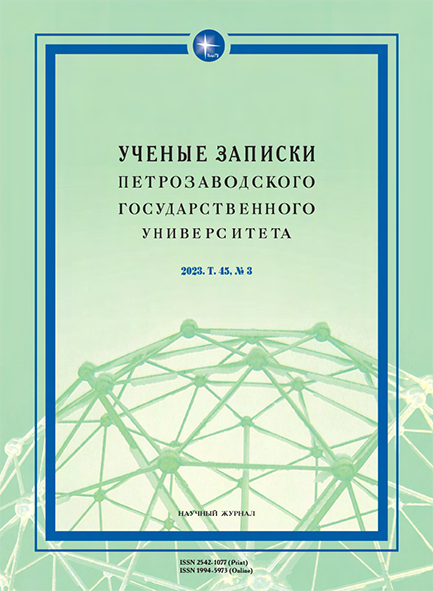ЛУБОЧНАЯ ЛИТЕРАТУРА И ЕЕ ВЛИЯНИЕ НА ПОСТРОЕНИЕ ПРОСТРАНСТВА В БЫЛИНАХ
LUBOK LITERATURE AND ITS INFLUENCE ON CONSTRUCTION OF SPACE IN RUSSIAN FOLK EPICS
Author(s): Tatyana Grigorievna IvanovaSubject(s): Language and Literature Studies, Russian Literature
Published by: Петрозаводский государственный университет
Keywords: folk epics; space in epics; epic toponyms; old Russian tales; lubok fairy tales;
Summary/Abstract: The article deals with fantasy (fictional) toponyms that penetrate into Russian folk epics at the late stage of their development, which is a reflection of the fading function of historical memory in the song epics. The handwritten tradition of epic tales and their popular lubok versions was an effective source of fantasy toponyms. In terms of space in epics, one can find some traces of “The Tale of Andrew of Crete”, “The Tale of Yeruslan Lazarevich”,“The Tale of Prince Bova” and “The Story about the Russian Sailor Vasily Koriotsky”. This fact once again testifies to the mutual permeability of the oral and written components of the traditional culture of the Russian people. Fantasy toponyms generated by popular lubok literature not only form the space of newly created epics (“The Sunflower Kingdom”, “The Marriage of Peresmyaka’s Nephew”, “Rynda”, “Garves”, “Yeruslan Lazarevich”), but also become the elements of the space of traditional plots (“Kozarin”, “Ivan Godinovich”, “Volkh Vseslavyevich”, “Volga and Mikula”,“Vasily Ignatyevich and Batyga”, blended epics about Dobrynya: “The Fight of Dobrynya Nikitich with Ilya Muromets”,“Dobrynya and Alyosha” and “Dobrynya and the Serpent”).
Journal: Ученые записки Петрозаводского государственного университета
- Issue Year: 45/2023
- Issue No: 3
- Page Range: 58-68
- Page Count: 11
- Language: Russian

